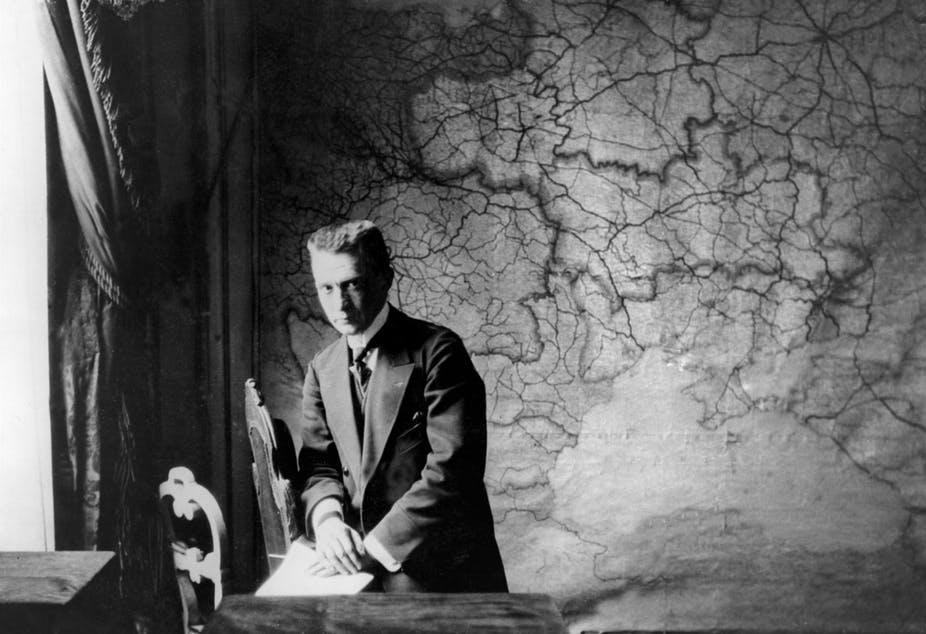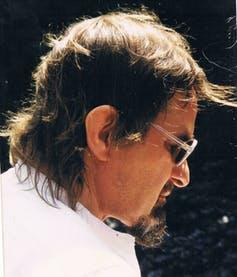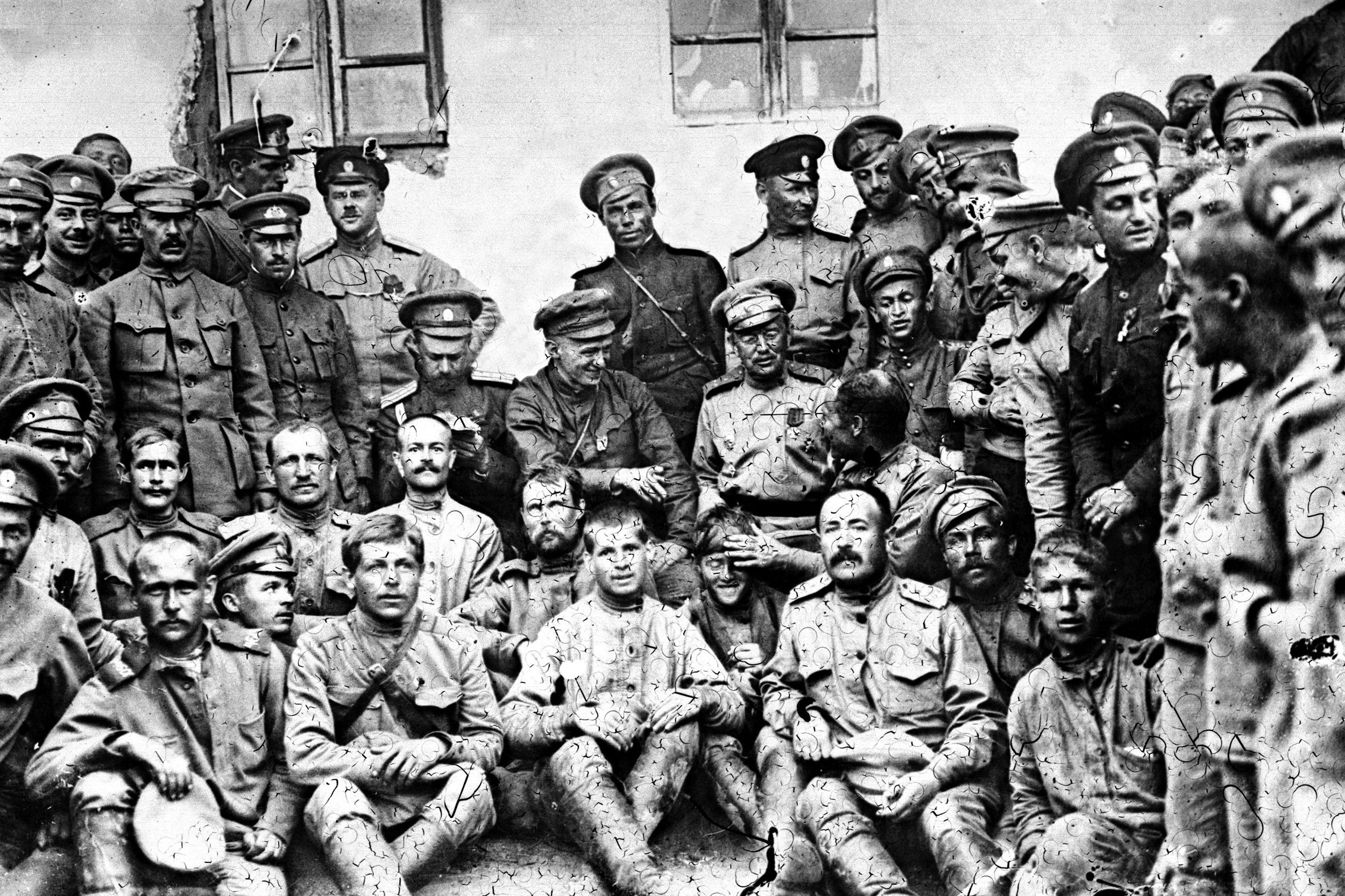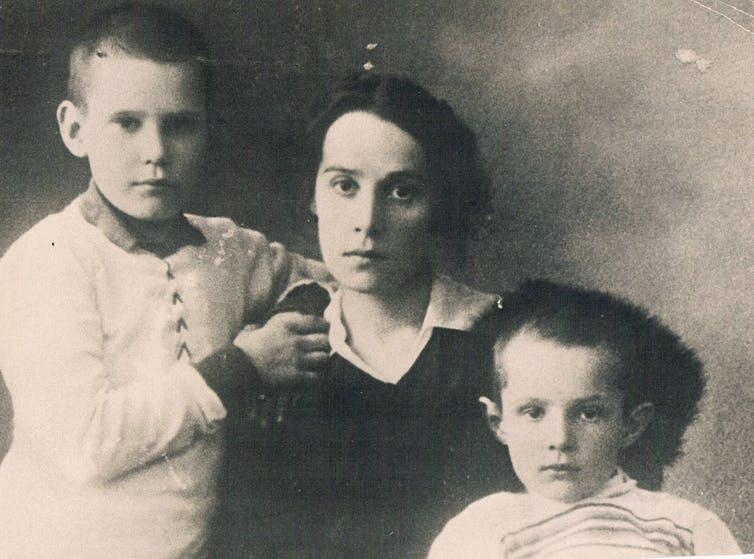The legacy of Alexander Kerensky, Russia’s last leader before the Bolshevik revolution
Kerensky has been much maligned by the history books. Here, his grandson tells Michael Hughes why he thinks his ‘self-effacing’ grandfather was misunderstood

Alexander Kerensky played a prominent role in the Russian Revolution, holding several ministerial positions in the provisional government, which was created following the abdication of Tsar Nicholas II in March 1917, only itself to be overthrown by the Bolsheviks in November. Some historians have suggested that Kerensky, who was Russia’s last prime minister before Vladimir Lenin, failed to take the kind of decisive measures that might have helped to enforce the authority of the government.
I sat down with Stephen Kerensky, Alexander’s grandson, in an interview, which also features on the latest episode of The Anthill podcast. Stephen, who grew up in the UK, only met his grandfather a couple of times as a teenager, before Alexander died in 1970. Although he is not a historian, in recent decades, Stephen has set out to defend his grandfather’s historical legacy, which he believes has been unfairly maligned. This is an extract from our conversation, where Stephen gives his opinion on some of the events of 1917, and shares some insights on his grandfather’s life.
In most standard textbooks, Alexander Kerensky seems to suddenly appear in 1917 as one of the leading figures in the provisional government. What was his background and why was he able to command widespread popularity throughout much of 1917?
He was a lawyer, graduated in 1905. His father had been Lenin’s school teacher and his grandfather had been a priest who left the priesthood to become a teacher. So between 1905 in 1917 most of his time, a bit less towards the end when he was in the Duma [the Russian parliament], his time was spent all over Russia defending the poor and the oppressed – mainly peasants from the injustices of the Romanov dynasty.
Now this is vitally important for two reasons. Firstly, he discovered in a precise legal way exactly what the faults of the system were. And in a more emotional way he discovered what the people wanted done about it. Not only that, but he also knew how to speak to them. And hence the rather emotional and probably over-emotional style of some of his speeches.

Kerensky is both praised and damned for his personality in 1917. On the one hand he is the charismatic figure, the man who tours the army, the man who could have mobilised the masses. On the other hand he’s seen as the empty vessel, the talker who could do nothing. Perhaps the man who wants to be Bonaparte and when he becomes prime minister sit in the Winter Palace and control it. Can you give me some sense of how you view his personality?
Zinaida Gippius, the poet, called him “the first love of the revolution”. And he was. There were storms of applause and wild cheering wherever he went in the beginning of the time of the provisional government. But he was also formidable. He was a little bit intimidating. He had a very commanding personality … Would you want a vain hysterical dithering nitwit to be your defence lawyer if you were taking on the Tsar’s courts? Would you?

There’s another thing that’s never mentioned. In April of 1916, Kerensky went to Sweden and had a kidney removed. And therefore he was on intravenous morphine all through the revolutionary period. Now I don’t know if you’ve ever tried intravenous morphine but one of the things it does is alter your personality and it does make you more … variable in your moods. And that’s never ever been mentioned by anyone until Richard Abraham and his very good, but colourless biography.
There is no doubt in that in the final months of the provisional government the Bolsheviks were becoming more popular but at no point were they hugely popular. But I want to go to July 1917 – the so-called July Days. This is where some rank-and-file Bolsheviks try to effectively seize power. Lenin is taken by surprise. He’s not in charge … and he sort of tags along with it. It fails. Could Kerensky at that stage have taken a tougher line to snuff out Bolshevism?
Well this is a cracker because it also applies to the beginning of the revolution. It applies to bringing people like Trotsky and Lenin back out of exile [earlier in 1917]. And [some at the time said]: “Why was this man so stupid? Did he not realise that if he invited these people back there would be trouble?” But the point is you’re either a Tsarist or you’re not. You either imprison people without trial or you don’t. And if they haven’t done anything there’s no reason to put them in prison. On the contrary there is every reason not to do so because to do so is counter-revolutionary and the revolution will roll on past beyond you. And the same is true of the July Days.
In August 1917, General Kornilov, who hadn’t been for long commander-in-chief of the Russian army, marched towards Petrograd. That whole affair to this day is surrounded by confusion and uncertainty. We know there were telephone conversations between Kornilov and Kerensky. What I think was going on was that Kornilov was determined to crush the provisional government. There have always been rumours that Kerensky actually wanted to bring Kornilov in to actually crush the radical left. And the Kornilov revolt failed. There is no doubt that it damaged Kerensky hugely. What do you actually think happened in those few frenzied days of the Kornilov rebellion?
How much demand was there for a counter-revolution against the provisional government in Russia in August 1917? Not one jot or iota, not a single one. And the only people who wanted it were the rich and a few senior officers. They had no troops. Kornilov was not going anywhere. And the worst possible thing that could have happened in Russia would have been an attack upon the Petrograd soviet which was [Kornilov’s] other plan – he was going to close it down.
One of the tantalising possibilities around the whole Kornilov affair is the role of the British. Now we know a few weeks, possibly a few days before the Kornilov rebellion that the American military attache William Judson wrote in a private letter that he believed something was going to happen but that the Americans would have clean hands: “suspicions could not attach to us”. So it’s very obvious that he had picked up that some allied representatives were playing with the idea of some kind of military counter-revolution. The question is: what was British involvement?
Now at some point, Commander Locker-Lampson of the Royal Navy Air Service, armoured car division which had been in Russia since 1915, was told that if Kornilov invited him or ordered him to his HQ, he was to take his armoured division of 500 men [and support Kornilov]. And he did. Now the only reports I know of this is what’s in grandfather’s book … [Locker-Lampson] went to Kornilov’s HQ and Kornilov tried to get to St Petersburg to close down the soviet and the railwaymen wouldn’t transport his men. So it was a farce.
But the question here is actually finding the information that links senior figures in the British military establishment to the Kornilov affair. Charlotte Alston, a very good historian of Russia wrote an article recently on Locker-Lampson’s armoured car squadron. She too can’t find the evidence of the actual links. And it is one of those areas that is very murky … I wonder in a sense if it is the Kornilov rebellion, which in some ways is a fairly random act of history, which is absolutely fundamental in changing around your grandfather’s reputation – I would agree unfairly. He has been denigrated from both the left and the right for it, which is perhaps always the fate of those who are trying to pursue something close to a middle course.
Well I don’t think there’s much chance for a middle course in Russia in 1917. The thing is that they hated him for his revolutionary views. They regarded him as the author of disorder. He was responsible as far as they were concerned for all the chaos in Russia. When he died in a hospital in New York in 1970, the staff there were nurses of Russian origin … And they refused to touch him. An 89-year-old man dying of cancer and shingles … That’s what they did because they held him responsible to starting the revolution. The man responsible for the Russian Revolution was Nicholas Romanov.
You read your grandmother’s memoirs and you read about two or three very difficult years … they finally got out in 1920. Your grandmother and her two sons they’re in the Lubyanka prison for a time, the treatment isn’t as harsh as it might be but it’s no picnic. They experience poverty, they experience deprivation, starvation.
They were in a cell a prison room in the Lubyanka containing about 50 women and every night at about two or three o’clock people would be taken away to be interrogated. And some of them came back and some of them didn’t … And then [my grandmother] narrowly escaped. And then she was in the Blitz in London and wouldn’t go down to the shelters, was in a top floor flat and the roof was blown off twice and then she came to us and she was. I can’t, I can’t begin to describe her. There would be days when she wouldn’t speak. There would be days when she would say “Bozhe moi, bozhe moi” – oh my God, oh my God.

What happened to your grandfather after 1917?
He went to Paris … it’s only in Britain that Kerensky is treated with utter contempt. They’re very fond of him actually in France and Italy and Germany and Spain and and also in America where he was put up, this Russian revolutionary, was put up in a New York brownstone near Central Park by a Republican senator and his wife … [Kerensky worked for periods of time at Stanford University on the papers of the provisional government]. He had to get a job as a library assistant to pay his way. That’s how well off he was. That’s how many millions he had salted away in Swiss bank accounts that he’s been accused of.
One of the things that strikes me about his writings on the Russian Revolution is of course, they’re informed by a particular perspective, but these are not crude hatchet jobs or kind of crude defenders of his position. They’re actually useful sources and they’re well written. Do you think he became a kind of, almost a dispassionate historian?
When everyone is lying about you, the last thing you do is try break it with lies. Not only was he not dishonest. But he was self-effacing. He never said anything about his kidney. He never said anything about his wife and children. He never said anything about the rest of his family … He was totally, totally unconcerned by all the abuse he gets. And I think there’s a bit in Julius Caesar where Brutus says: “Your threats passed me by as the idle wind and I respect them not.”
Michael Hughes is a professor of modern Russian history at Lancaster University. This article was originally published on The Conversation (www.theconversation.com)
Join our commenting forum
Join thought-provoking conversations, follow other Independent readers and see their replies
Comments
Bookmark popover
Removed from bookmarks